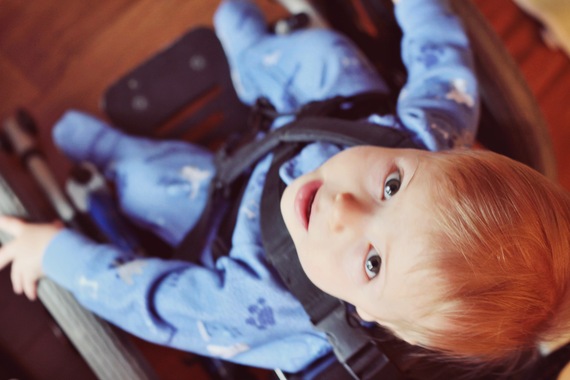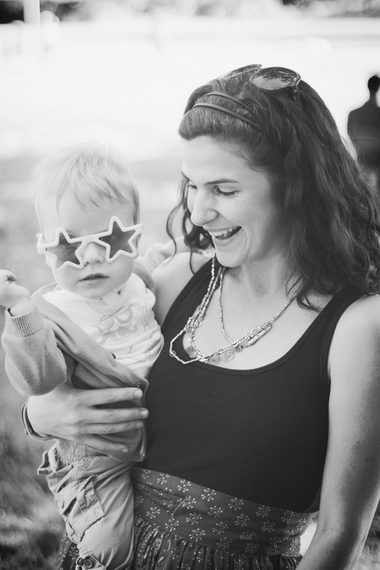In 2012, when my son was born with spina bifida -- a birth defect of the spine -- I joined the ranks of millions of people worldwide who love someone with a disability. I've learned a lot in the year since: how to find the best wheelchair-accessible parks, how to schedule multiple therapists, how to be a mom. But more than that, I learned that I am "a special kind of person." At least, that's what people told me.
Why? Because it takes a special kind of person to raise a child like my son.
I'll be honest and say that at first, I really liked being a special kind of person. Who wouldn't? It was nice. It meant I was doing something good, something important and noble. I am, after all, raising a child who has a disability.
But after a few months, it didn't sit so well anymore. Being called a "special kind of person" began to make me uncomfortable. And then I saw a photo on Facebook that made me realize why. It was a picture of a teenage girl dressed for prom and standing beside her date -- a boy with Down syndrome. The picture was charming, but it was the comments that got to me:
"Honorable move, looks like she made his day!"
"Someone at my school did the same this year. It made me proud of her because she's absolutely beautiful and could've had anyone she wanted."
"That is very sweet of her..."
Turns out, she was a special kind of person, just like me. But it felt hurtful somehow. I started wondering, "How would I feel if the boy in this photo was my son?" Sixteen years from now, when my son goes to prom, will people applaud his date? Will they see her as a martyr? As a saint?
Just what are we saying about people with disabilities when we glorify those who love and care for them?
Think of it this way: I am married; I have a mother and father who love me; I am surrounded by friends. But what if, time and again, I overheard snippets of conversations -- words that praised them for the love and care they've given me? Imagine whispers to my mother: "It takes a special kind of person to raise a kid like that." Or to my husband: "You are such an inspiration -- I don't know if I could be with someone like her." These comments would say so much about my worth -- my value.
Believe me, I am not diminishing my work as a mother. I am not ignoring the extra time and energy it takes to carry a wheelchair up a flight of stairs. I am not pretending that my son is just like everyone else. But when we glorify his friends, or his mother, or his one-day prom date, we imply that he is less-than. We imply that those with disabilities are not equally lovable -- that it takes someone "special" to muster up this kind of affection. It seems we reveal our innermost bias; at least, I think I did.
The thing is, all love should be praised, and all sacrifice, too. Loving someone is hard work -- whether that person is a football player, a musician or a wheelchair tennis star. So call me hardworking or call me a wonderful mother. But if you call me a special kind of person, I'll probably nod and smile, because I know a secret: If you knew my son, you'd love him, too.
So, I guess you're a special kind of person -- just like me.
 Like Us On Facebook |
Like Us On Facebook |
 Follow Us On Twitter |
Follow Us On Twitter |
![]() Contact HuffPost Parents
Contact HuffPost Parents
Also on HuffPost:


